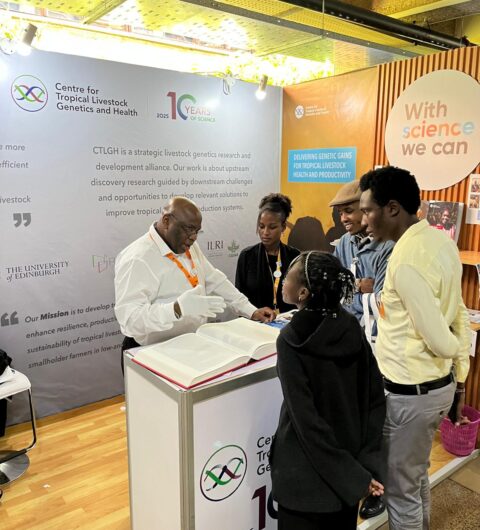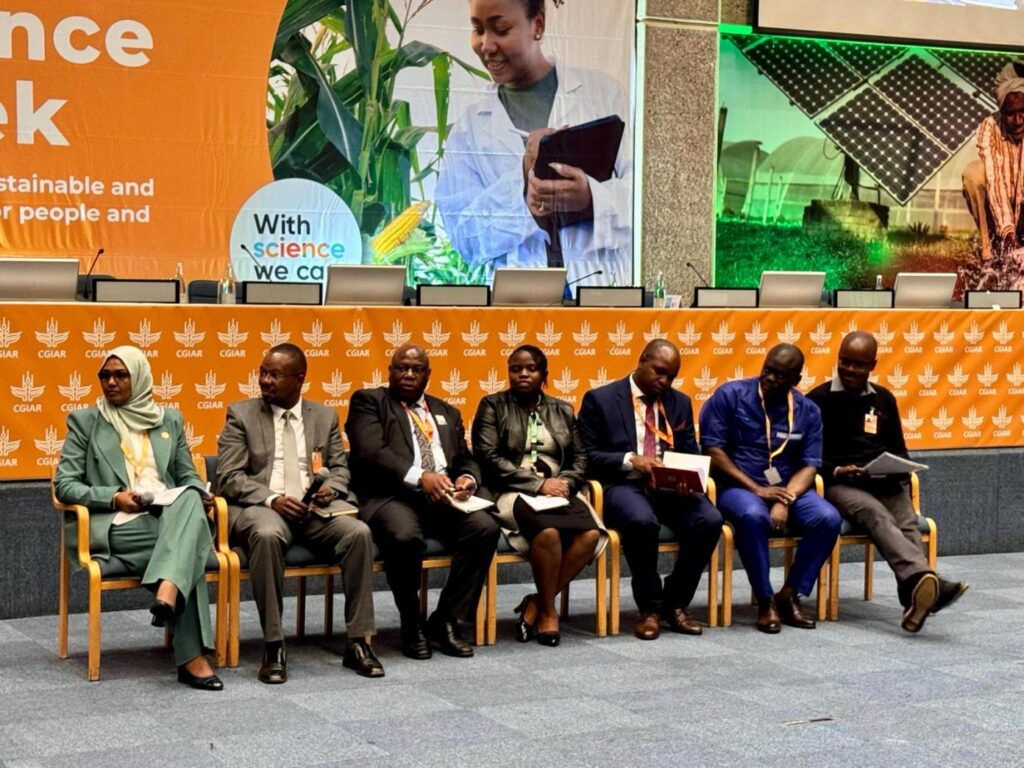
CTLGH is a strategic partnership among the University of Edinburgh through the Roslin Institute, the International Livestock Research Institute (ILRI) and Scotland’s Rural College (SRUC). This partnership aims to contribute to the development of livestock in low to medium income countries (LMICs) through genetics and biotechnological advancements.
Although CTLGH is headquartered at the Roslin Institute, it has nodes in Nairobi, Kenya and Addis Ababa, Ethiopia. By working in collaboration with national and international partners, CTLGH allows the flow of research and knowledge among different players and stakeholders for implementation on real farms. Current efforts have focused on finding solutions to some of the major productivity and health problems facing smallholder farms in Africa.
Historically, there have been strong links and connections between Scotland and Africa. Some of these go back to the times of Dr David Livingstone. Over the years, Universities and research institutions in Scotland and different countries in Africa have worked together and even exchanged expertise. Not surprisingly, the current Director General of ILRI, one of CGIAR institution, Professor Appolinaire Djikeng is an affiliated Professor for Tropical Agriculture and Sustainable Development at the University of Edinburgh, a position he held previously when he was Director of CTLGH in Edinburgh.
CGIAR Science Week
The delegation from the Roslin Institute to the CGIAR Science Week, which included CTLGH scientists and Centre Management staff, was led by the current director of CTLGH and Chair of Tropical Livestock Genetics, Professor Mizeck Chagunda.
During the week-long event, which comprised of conferences, side-events, workshops, demonstration stands, the CTLGH had a manned-stand and held a side-event. These activities highlighted the importance of CTLGH’s research and knowledge exchange work in contributing to the African Union’s Agenda 2063 – The Africa We Want. The CGIAR institutions based in Africa are driving their research and development strategies towards this theme.
During such events, CTLGH aims to communicate in simple ways the contribution of advanced scientific endeavours and biotechnologies in tackling global challenges and to the transformation of food systems through improvements in tropical livestock. All this with the goal of creating high-level awareness and an enabling environment to generate the discussion on how to harness the benefits accruing from agricultural biotechnology, innovation and emerging technologies to transform the livelihoods of smallholder livestock farmers in LMICs.
“Our booth was visited by farmers, pastoralists, community workers, school teachers, pupils and university students all with an interest in science and increasing livestock production and welfare. CTLGH have a capacity in building knowledge that we hope to be able to expand to schools in Africa.”
Jen Meikle, CTLGH Centre Operations Manager, Roslin Institute
“Our work supports the main CGIAR mission to transform food, land and water systems by ensuring that genetic innovations reach smallholder farmers improving productivity, resilience and livelihoods.
“Our presence at the first CGIAR Science Week in Nairobi highlighted the importance of science-based solutions tailored to LMICs (low to middle income countries) and showcased how targeted genetics research can contribute to sustainable agriculture, climate adaptation, environmental impact mitigation and food security.”
Professor Mizeck Chagunda, Director of the Centre for Tropical Livestock Genetics and Health

CGIAR – the Consultative Group for International Agricultural Research – is a global partnership engaged in researching ways of combatting food insecurity. Through their research the body hopes to reduce rural poverty, improve human health and nutrition and manage natural resources sustainably.
The body has an annual research portfolio of just over $900 million with more than 9,000 staff working in 89 countries and brought together some of the world’s leading scientists and decision-makers in agriculture, climate, and health for the very first CGIAR Science Week.
This gathering was a key moment to advance research and innovation, inspire action, and establish critical partnerships at the Science Week in Nairobi held at the United Nations compound to discuss the future of farming in the Global South. Part of the conference discussion involved AI and its application to changing food systems which are under pressure from climate change, resource scarcity and hunger.
Better Cows Better Grades – Gates Foundation
One of the funders of CTLGH is the Gates Foundation and two of the scientists in the film below conduct research work for CTLGH.
Food and nutrition security remains a challenge in Africa. However, biotechnologies for livestock conservation and development offer potential solutions. There are African instruments to support the needed transformation, those instruments are embedded in the Agenda 2063-The Africa we want, and in the STISA 2024 to “Accelerate Africa’s transition to an innovation-led, Knowledge-based Economy”, and in the CAADP Strategy and Action Plan: 2026-2035 (Building Resilient Agri-Food Systems in Africa).
Article first published in The Edinburgh Reporter – June 6, 2025.
